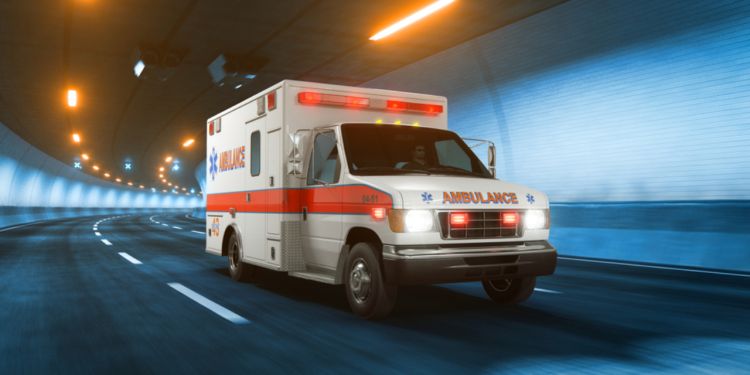
Accidents and emergencies can happen at any time, and it's important to be prepared for them, especially when living in a foreign country. As an expat in Hong Kong, there are a few key things you should know in order to handle accidents and emergencies effectively.
Is Hong Kong safe for expats?
Hong Kong is a generally very safe place for expats to live and work. However, as with any city, there are certain precautions that expats should take to ensure their personal safety.
According to statistics from the Hong Kong Police Force, the overall crime rate in Hong Kong has been steadily decreasing in recent years. In 2020, the overall crime rate was the lowest it has been in over three decades. The city has a relatively low rate of violent crime, and instances of theft and property crime are also relatively rare.
However, as with any city, it is always a good idea to take basic safety precautions such as being aware of your surroundings, avoiding walking alone in poorly lit or isolated areas, and keeping valuables out of sight. It is also advisable to familiarize yourself with local emergency numbers and procedures in case of any unexpected events.
Emergency numbers in Hong Kong
In Hong Kong, you can call the following emergency numbers in case of an emergency:
- Emergency services (police, fire, ambulance): 999
- Police Hotline: 2527 7177
- Fire department: 995
- Ambulance:996
- Marine Police: 994
- Anti-Terrorist Hotline: 2761 0000
Keep these numbers in your phone so that you can dial them quickly in case of an emergency. Note that if you are calling from a phone that is not registered in Hong Kong, you may need to dial the international access code (00) before the emergency number.
In addition to the emergency numbers, there are also several non-emergency hotlines that you can call for assistance or information:
- Immigration Department hotline: 2824 6111
- Consumer Council hotline: 2929 2222
Driving safety in Hong Kong
Driving in Hong Kong can be a challenging experience, especially for expats who may not be familiar with the local road rules and driving culture. However, by following a few simple safety guidelines, you can minimize the risk of accidents and make your driving experience in Hong Kong more enjoyable.
- Familiarize yourself with the local road rules and traffic regulations.
- In Hong Kong, vehicles drive on the left side of the road, and traffic lights, signs, and markings are used to regulate traffic flow.
- Note that roads in Hong Kong tend to be hilly, and you will often have to handle steep inclines and narrow streets.
- Make sure you understand the meaning of different road signs and signals, and always observe the speed limit.
- Maintain a safe distance from other vehicles.
- Pay attention to your surroundings at all times and be prepared to react to sudden changes in traffic flow or road conditions.
- Be mindful of pedestrians, especially in busy urban areas, as city streets tend to get very busy in Hong Kong, especially during rush hours.
- Avoid using your phone or engaging in other activities that may take your attention away from the road.
In the unfortunate event that you find yourself in a traffic accident in Hong Kong, do the following:
- stop your vehicle
- provide details about yourself to the other vehicle owner
- note down the other vehicle owner's details, including car registration
- report the incident to the police
Air pollution in Hong Kong
One of the health concerns to consider before planning your move to Hong Kong is air pollution. The city is known for its occasionally high levels of air pollution, which can have serious impacts on the health of the city's residents and visitors.
One of the main sources of air pollution in Hong Kong is vehicular traffic, particularly the high number of diesel-powered vehicles on the roads. Other sources of air pollution in the city include power plants, industrial facilities, and the burning of solid fuels such as coal and wood.
Exposure to high levels of air pollution can cause a range of health problems, including respiratory and cardiovascular diseases, cancer, and other illnesses. Children, older adults, and people with existing health conditions are particularly vulnerable to the effects of air pollution.
To address the problem of air pollution in Hong Kong, the government has implemented a number of measures, including the introduction of stricter emission standards for vehicles, the promotion of alternative modes of transportation, and the development of cleaner energy sources.
For current updates on air quality in Hong Kong, check out Aqicn.org.
Natural disasters in Hong Kong
Hong Kong is prone to a number of natural disasters, including typhoons, earthquakes, and landslides. It's important to be prepared for these events and to follow the instructions of local authorities. Make sure you have an emergency kit with supplies such as water, non-perishable food, a flashlight, and a battery-powered radio. It's also a good idea to have an evacuation plan in place in case you need to leave your home in a hurry.
Make sure to pay attention to the notifications on your phone. The Hong Kong government sends out timely warnings and instructions if a typhoon is expected. You can also get updates from the Hong Kong Observatory.
Useful links:
We do our best to provide accurate and up to date information. However, if you have noticed any inaccuracies in this article, please let us know in the comments section below.











